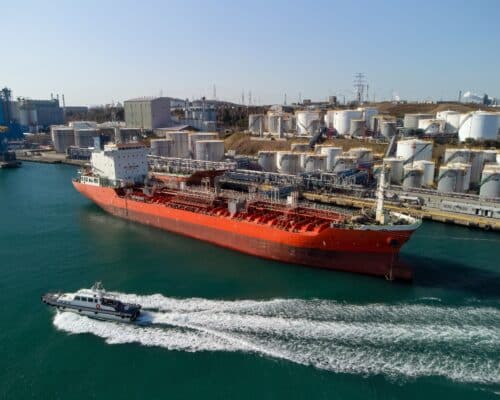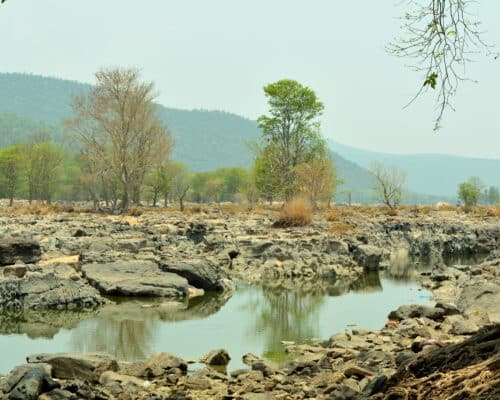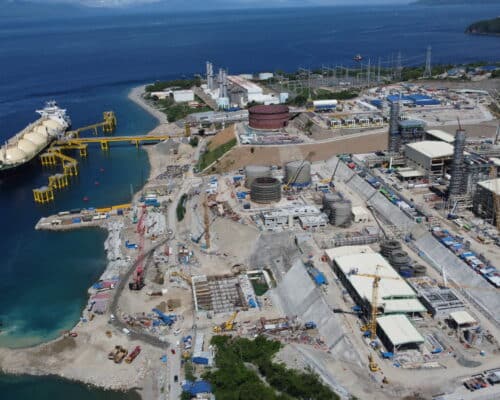Blog

Is Australia’s Brown Hydrogen Export Project Destined to Fail? [Op-Ed]
Paul Martin, co-founder of the Hydrogen Science Coalition, shares his thoughts on Australia's brown coal hydrogen exports and calls for a shift in investment focus towards renewable energy resources instead.

South Korea’s East Sea Gas Development Will Not Strengthen the Country’s Energy Security [Op-Ed]
South Korea’s Yoon Suk-yeol administration recently announced the exploratory drilling of potentially massive oil and gas reserves in the East Sea to address the country’s natural gas demand. However, with the country's natural gas demand declining, large oil and gas developments in the East Sea could become stranded assets.
The Post-oil Economy in the UAE and How It Is Preparing
The UAE is known for being in an oil-rich region and historically relying on oil exports as a significant part of its economy. This reliance on oil is now slowly changing in preparation for the post-oil world. Multiple government programmes and private sector investments are behind this transition.
Wind Energy in Malaysia – Potential for Growth
Malaysia has limited capacity for wind energy due to geographic and climate factors. As a result, the country's renewable energy programs primarily focus on solar and hydropower. However, wind energy can be useful in select regions with higher than average wind energy capacity.
Hydroelectric Energy: Advantages and Disadvantages
The advantages and disadvantages of hydroelectric power are long. While it is one of the largest sources of renewable energy globally, it remains divisive amongst clean energy advocates. Its place in the energy transition is still up for debate.
Energy Crisis in the Philippines and Asia
With global LNG prices reaching unprecedented highs, several countries in Asia are now facing an energy price crisis. How is this affecting the people and how are governments responding?

5 Biggest Advantages and Disadvantages of Natural Gas
There are several pros and cons to using natural gas. While it is still a fossil fuel, it produces significantly less carbon dioxide than coal and oil. Yet, on the flip side, poor production practices, leaking transportation pipelines, and extreme price volatility raise questions about if it really is worth investing in.

Japan’s Ongoing Harm in the U.S. Gulf [Op-Ed]
Japan is the primary backer of public and private U.S. LNG export facilities, which have caused significant harm to local fisheries. The shrimp industry, vital for Louisiana's sustenance and economy, has been severely impacted. Additionally, methane, a key constituent of LNG, is a potent greenhouse gas, 80 times more impactful than carbon dioxide. Leakage from these facilities and throughout the supply chain exacerbates the climate emergency. While the Biden administration's temporary halt on new LNG export authorisations is commendable, more decisive actions are required to address this issue effectively.

2024 India General Elections – Opportunity to Advance Sustainable and Resilient Agri-food Transition [Op-Ed]
Dr Roopam Shukla, Assistant Professor at the Centre of Excellence in Disaster Mitigation and Management at the Indian Institute of Technology, shares his opinion on the opportunities of India's 2024 general elections, which present a pivotal moment for local leaders and policymakers to elevate the discourse on how sustainable and resilient farming practices are essential for the future of India’s agriculture sector.

Revisiting the Narrative of Indonesia’s Energy Transition in the Prabowo-Gibran Era [Op-Ed]
The official announcement of Prabowo Subianto-Gibran Rakabuming Raka as Indonesia's President and Vice President for 2024-2029 will shape the country's energy transition policy future. Central to this is gauging their alignment with national climate goals and strategising how the administration will tackle energy transition hurdles over the next five years.

India’s Water Crisis Ahead of 1.5 Degree Warming World: A Portent of Disaster to Come [Op-Ed]
Addressing the ramifications of the crisis and the necessity for a comprehensive strategy for India’s water resource management is crucial for a scorching summer ahead. Can political parties make this an election agenda?

In a Warming World, the Philippines is Giving Far Too Warm a Welcome for Gas [Op-Ed]
Despite the grave socio-economic and climate impacts, the US and Japan are notorious champions of LNG. Will President Marcos' meeting with Japanese Prime Minister Kishida and US President Biden give a genuine outcome for renewables, or is this another parade of gas as bridge fuel deception?
Renewable Energy in Malaysia 2024 – From Oil To Sustainability
Malaysia's energy mix is heavily geared towards coal, oil and natural gas. However, the country has ambitious renewable energy and decarbonisation goals over the next 30 years. The rapid development of domestic renewable energy is crucial to stay on track.
Environmental Issues in the Philippines and New LNG Projects
The fossil gas expansion in the Philippines, mainly fueled by SMC, is taking place amid the worsening climate and energy crisis. The move risks burdening the nation with high energy costs, unreliable supply, stranded asset risk, increased energy dependency and a devastating impact on the environment.
Most Popular
Categories
-
9
-
31
-
130
-
4
-
17
-
39
-
51
-
14
-
10
-
15
-
24
-
6
-
178
-
168
-
23
-
1
-
1
-
23
-
30
-
36
-
73
-
14
-
76
-
40
-
17
-
7
-
33
-
33
-
85
-
260
-
20
-
36
-
33
-
9
-
41
-
35

